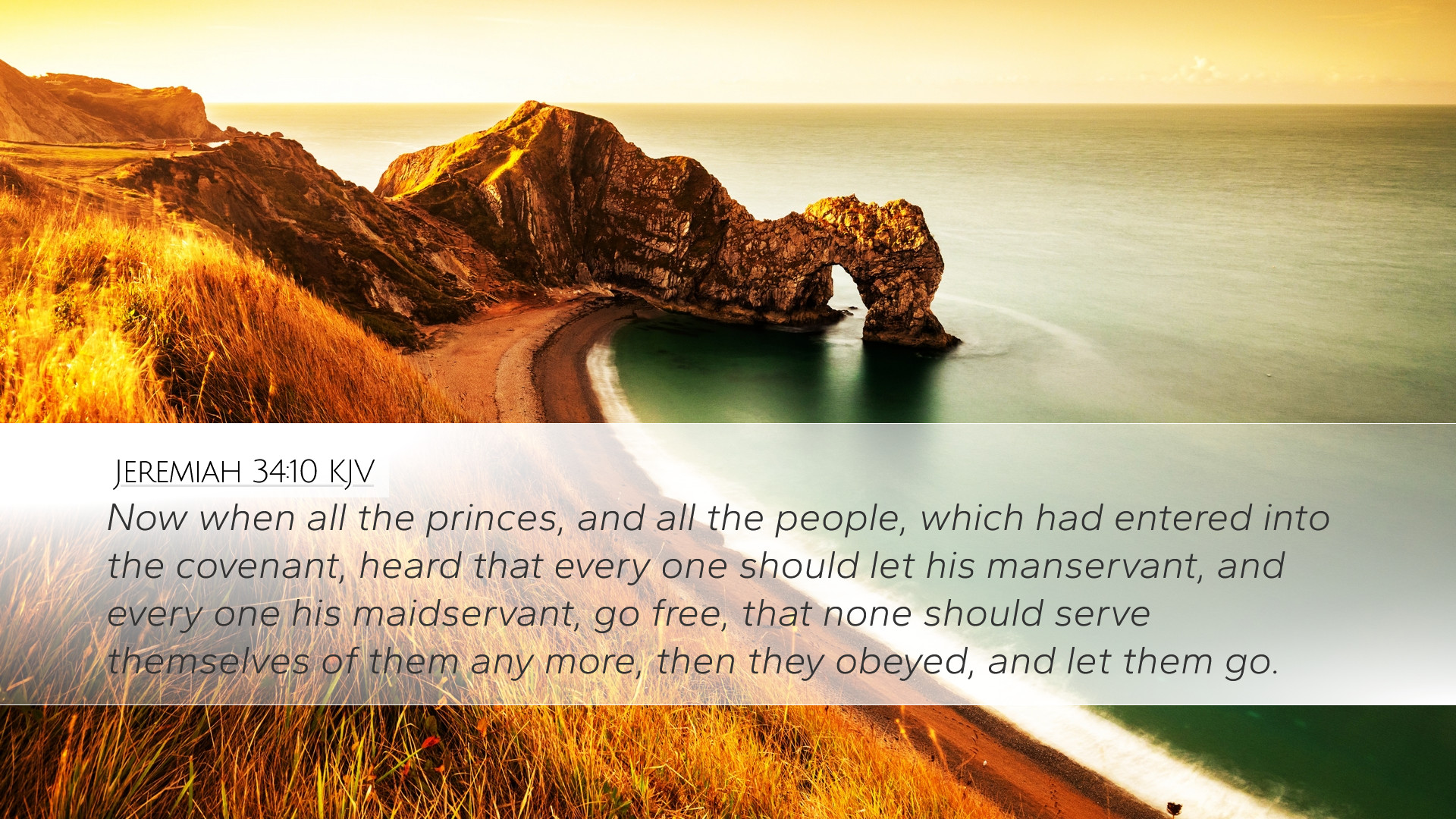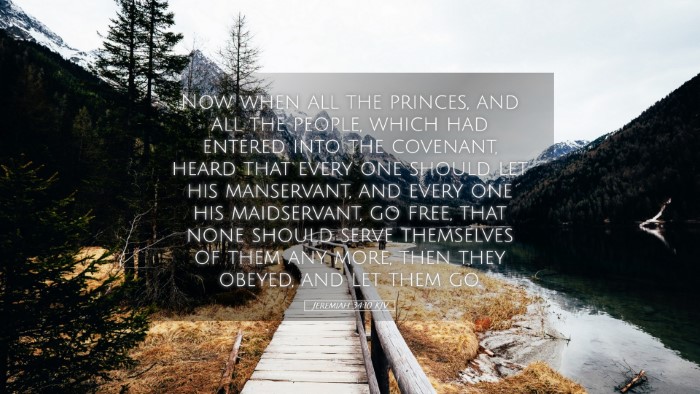Bible Commentary on Jeremiah 34:10
Jeremiah 34:10:
"Now when all the princes, and all the people, which had entered into the covenant, heard that every one should let his manservant, and every one his maidservant, go free; that none should serve themselves of them any more, then they obeyed, and let them go."
Contextual Background
This verse captures a pivotal moment in the history of Israel, wherein the Jewish leaders and people were prompted to release their Hebrew slaves in accordance with a covenant they had made before God. The historical context involves the impending Babylonian siege and the resulting need for repentance and obedience towards God’s commandments.
Commentary Insights
Matthew Henry's Commentary
Matthew Henry emphasizes the moral imperative this command held. He notes that the Israelites, having entered into a covenant of liberty, found spiritual significance in the act of emancipation. Henry stresses that the act of letting go of their servants was not merely a socio-political act but one deeply rooted in their covenant with God. He points out the initial resistance of the people, which was overcome when they heard the divine directive, demonstrating that the voice of God leads to obedience even in times of disobedience.
Albert Barnes' Commentary
Albert Barnes elaborates on the implications of the people’s obedience in Jeremiah 34:10. He discusses the historical context of servitude in Israel and highlights the fact that social injustices were prevalent. Barnes indicates that these people acted in faith according to God’s promise, emphasizing the importance of acting in accordance with divine principles of justice and mercy. His commentary speaks to the broader theological theme of liberation and the importance of adhering to God's commandments as foundational to Israel’s national identity.
Adam Clarke's Commentary
Adam Clarke provides a thorough examination of the covenant mentioned in Jeremiah 34:10. He explains that this liberation corresponds with the Mosaic Law, which allowed for the freedom of servants during the Jubilee year. Clarke draws attention to the idea that this was an act of faith and trust in God, suggesting that the release of their servants symbolized Israel's return to divine order. He also notes that this moment of obedience was critical for the community’s future, as they were to rely on God during the difficult times ahead.
Theological Reflections
In the context of biblical theology, Jeremiah 34:10 highlights the significant interplay between covenantal obedience and social justice. The act of releasing slaves serves as a reflection of the character of God who desires freedom for His people.
This verse serves as a reminder for contemporary believers about the importance of obedience in all aspects of life. The historical covenant mentioned encourages modern readers to evaluate their commitments to justice, mercy, and God’s commandments.
Application for Pastors and Theologians
- Preaching Justice: Pastors may take this text to address issues of injustice and servitude in today's world, reminding congregants of their responsibility to uphold justice as a reflection of God’s will.
- Understanding Covenantal Obligations: Theological discussions should illuminate what it means to live within a covenant relationship with God, urging believers to recognize how obedience to His word fosters communal and personal liberation.
- Faith and Action: Leaders in the church can be encouraged to facilitate action-based faith, demonstrating how following God actively in their lives can lead to positive change in communities.
Conclusion
Jeremiah 34:10 stands as a powerful reminder of the call for obedience to God's laws, especially concerning justice and freedom. The insights gathered from reputable commentaries reveal its relevance not only in the historical context but also in personal and communal faith practices today. As such, it encourages an active engagement with faith that promotes both individual righteousness and societal transformation, reinforcing the belief that God’s commands are to be followed not just out of obligation but out of a heartfelt desire to align with His will.


